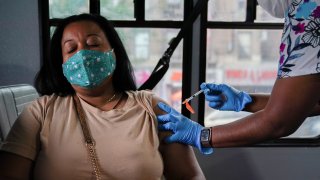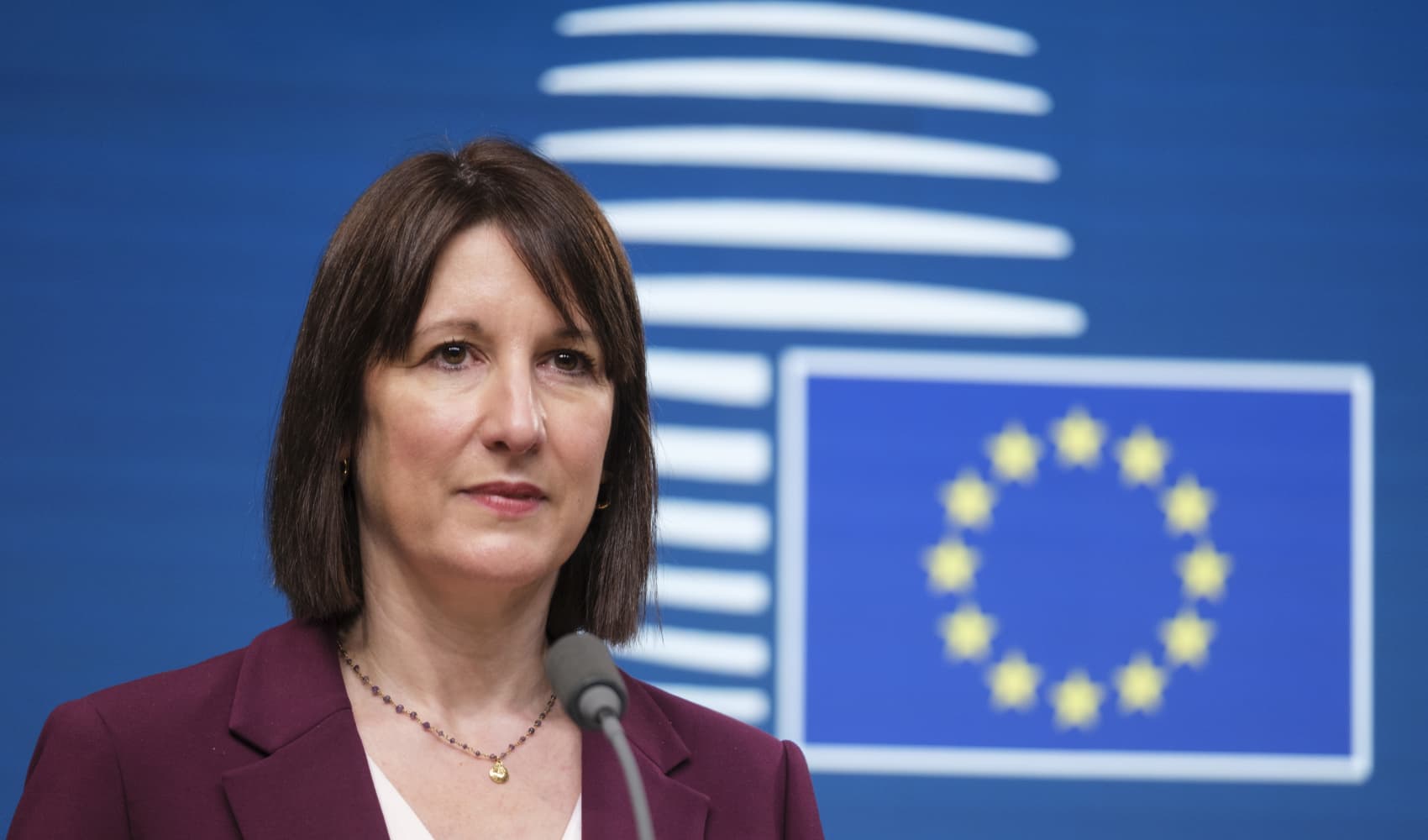
- The FDA staff declined to take a stance on whether to back booster shots of Pfizer's Covid-19 vaccine, saying U.S. regulators haven't verified all the available data.
- "Overall, data indicate that currently US-licensed or authorized COVID-19 vaccines still afford protection against severe COVID-19 disease and death in the United States," they wrote in a 23-page document.
- The staff report is meant to brief the FDA's Vaccines and Related Biological Products Advisory Committee, which meets Friday to review Pfizer's request to approve Covid booster doses for the general public.
WATCH ANYTIME FOR FREE
>Stream NBC10 Boston news for free, 24/7, wherever you are. |
The staff of the Food and Drug Administration on Wednesday declined to take a stance on whether to back booster shots of Pfizer's Covid-19 vaccine, saying U.S. regulators haven't verified all the available data.
"There are many potentially relevant studies, but FDA has not independently reviewed or verified the underlying data or their conclusions," they wrote in a 23-page document published on the agency's website. "Some of these studies, including data from the vaccination program in Israel, will be summarized during the September 17, 2021 VRBPAC meeting."
Get updates on what's happening in Boston to your inbox. Sign up for our >News Headlines newsletter.
The staff said some observational studies have suggested declining efficacy of the Pfizer vaccine over time against symptomatic infection or against the delta variant, while others have not.
"Overall, data indicate that currently US-licensed or authorized COVID-19 vaccines still afford protection against severe COVID-19 disease and death in the United States," they wrote.
The data the FDA is looking at includes efficacy numbers out of Israel, where researchers there have released observational studies showing the effectiveness of the Pfizer vaccine against infection waned over time.
Money Report
In separate documents released Wednesday, Pfizer argued a third dose of the Covid vaccine six months after a second shot restores protection from infection to 95%.
FDA staff appeared to take a skeptical tone on the data, as observational studies don't adhere to the same standards as formal clinical trials.
"It should be recognized that while observational studies can enable understanding of real-world effectiveness, there are known and unknown biases that can affect their reliability," agency staff said. "Furthermore, US-based studies of post-authorization effectiveness of BNT162b2 may most accurately represent vaccine effectiveness in the US population."
The staff report is meant to brief the FDA's Vaccines and Related Biological Products Advisory Committee, which meets Friday to review Pfizer's request to approve Covid booster doses for the general public. The documents published offer a glimpse of the agency's view on third shots.
The Biden administration has said it wants to begin offering booster shots to the general public as early as next week, pending authorization from the FDA. The move is part of President Joe Biden's broader plan to confront a higher number of Covid cases fueled by the fast-spreading delta variant.
Scientists and other health experts have repeatedly criticized the plan, saying data the federal health officials cited wasn't compelling and characterizing the administration's push for boosters as premature.
There is currently not a consensus in the biomedical community on boosters for the general public, said Dan Barouch, an immunologist at Harvard Medical School.
"There are senior experts who fall on different sides of the debate," he said. "Right now, it'll be interesting to see where the debate goes, but obviously it is known that the Biden administration has suggested that boosters are needed."
The Biden administration has cited three studies, released by the Centers for Disease Control and Prevention, that showed the vaccines' protection against Covid diminished over several months. The administration's plan, outlined by senior health officials, calls for people to get a third dose eight months after they got their second shot of either the Pfizer or Moderna vaccine. Biden has said scientists were reviewing whether to move the third shot up by three months.
When the administration announced the plan in August, senior health officials said they worried protection against severe disease, hospitalization and death "could" diminish in the months ahead, especially among those who are at higher risk or were vaccinated during the earlier phases of the vaccination rollout.
A group of scientists, including two senior FDA officials and the World Health Organization, published a paper Monday in the journal The Lancet that argued booster shots are not needed at this time for the general public. While Covid vaccine effectiveness against mild disease may wane over time, protection against severe disease appears to persist, the scientists said.
On Tuesday, WHO officials called again for wealthy nations to stop distributing Covid vaccine booster doses in hopes of making more shots available for poorer countries with lagging immunization rates.
"There are countries with less than 2% vaccination coverage, most of them in Africa, who are not even getting their first and second dose," Director-General Tedros Adhanom Ghebreyesus said at a press briefing. "And starting with boosters, especially giving it to healthy populations, is really not right."






